For decades, "bad" Irish girls were sent away to convent-run laundries, where they worked for no pay in awful conditions for years on end. Now, writes Jane Wheatley, survivors are finally getting compensation.
Martina Keogh was 16, selling newspapers outside a Dublin cinema, when a fight broke out on the street beside her. She was arrested along with the girls involved, sent to court and convicted of disorderly conduct. Her punishment would be two years' incarceration and unpaid labour in a convent laundry run by nuns.
It was 1964, the year the Beatles released A Hard Day's Night, Elizabeth Taylor and Richard Burton married for the first time and 5000 more American troops were sent to fight in Vietnam, but Martina would know nothing of all this. Instead, she would spend her days washing and ironing and her nights in a locked dormitory with bars on the windows.
On a hot, sunny day earlier this northern summer, Keogh takes me back to the convent in Dublin's Sean McDermott Street, an imposing four-storey brick building now silent and empty of life. Set into a panel of the big, wooden, double-entrance doors is a small, eye-level grille. Keogh recalls being escorted there by a garda (policeman): "The shutter across the grille slid back and I could just see eyes looking out," she says. "The garda said, 'Got another one for you here, Sister.' "
At the far end of the building is a set of gates - "That's where the laundry vans came in and out" - topped by an iron arch inset with the words, "Monastery of Our Lady of Charity of Refuge". Some letters are missing. A woman walking along the street towards us stops, curious to know why we are taking photographs. She has lived in the block of flats next to the convent all her life, she says, and remembers as a child standing on a balcony and throwing sweets and cigarettes over the high wall to the inmates walking in the exercise yard below. "They wore uniforms and aprons," she says. "We were told they had been bad girls."
Four religious orders ran the 11 Magdalene laundries for 70 years; the last one closed in 1996. Some 10,000 girls passed through these institutions; they worked for no pay and were known as the Magdalenes - fallen women. A few had been sent after police raids on brothels but most came by different routes: some, like Martina Keogh, sent by the courts, some from orphanages and so-called industrial schools. Still more came from Mother and Baby Homes and had their babies given away for adoption, as in the film Philomena, starring Judi Dench, which opens on Boxing Day. Some were consigned by their own families, others referred by social or psychiatric services, the prettier ones considered a risk to morality.
Martina Keogh's story is a common one. Her unmarried mother was living in Dublin with one son and was pregnant with Martina when she went home to Kerry to ask for support from her family. But in 1950s Ireland, her hopes were doomed. "My grandfather was a schoolteacher," Keogh tells me. "Two of Mam's brothers were garda; they ran her out of town for bringing shame to them. My grandmother kept my brother and Mam came back to Dublin." After Martina was born, her mother went out to work, leaving her with a child-minder, but it was hard to manage and at age two the child was put into an orphanage. "A place in Kilkenny," she says. "Lovely it was. But when I was four, Mam married the oufla [the old fellow, as Keogh called her stepfather] so she could get us kids back. Once you were married, you were an honest woman."
Martina was soon being sexually abused by her stepfather: "I was in and out of orphanages and always running away." By the time she was sent to the laundry she'd been earning for several years: "We needed it - the oufla wouldn't give Mam any. 'I'm not feeding your bastards,' he said.
"From the moment I arrived [in the laundry] we worked [very hard]. Feeding the sheets into the dryer, that was brutal, and ironing - vestments, shirts, nuns' habits - I f...ing hate ironing. I won't have an iron in the house. Once a friend of mine was told off for being slow on the compressor and the nun brought it down on her hand. Oh, it was awful; when it lifted off it brought the skin with it. I ran away, I couldn't look. We were locked in the dormitories from 7.30pm till the nuns came to wake us for Mass at 6am. If there'd been a fire we'd have burnt in our beds."
Keogh got out when her two years were up but many women never left. Institutionalised, uneducated and with no support or contacts in the outside world, some of them didn't even know their real names or where they came from.
Mary Josephine O'Neill spent 17 years with the nuns and had her name changed twice. She was five when she was put in a residential convent school because her mother was considered incapable of looking after her. There was already a little girl with the same name, so Mary became Molly. "After two years my sister arrived. I didn't even know I had a sister but I ran down to get her."
Now 65, Mary Currington (her married name) has vivid memories of her convent years: some have haunted her to this day and caused terrible distress in her marriage. "School was very severe; we were sexually abused by the older girls. We little ones were in a dormitory that was supposed to be supervised by one of the sisters, but it wasn't and the big girls would come in. Oh, the dreadful, disgusting things they made you do, and did to you."
At 16, Mary was sent to work on a farm in west Cork with a relative of one of the nuns. As she left the convent, she was given one piece of advice, "Don't let a man get near you or touch you." She couldn't settle on the farm and was eventually taken away to work in the laundry of another convent run by the same order. "I had my name changed again, this time to Geraldine, even though I cried and said my name was Mary. I was taken upstairs, my clothes taken off me and all my long, black hair cut off. I was 18. We washed everything from sheets to businessmen's shirts. You had to scrub stained things by hand, there was bleach in the soap and your knuckles were raw."
Later she worked in the sewing room. "We made banners for processions, vestments for the clergy and the choir, altar linen, smocked dresses in lovely material and Holy Communion dresses.
"I didn't know it but all the time my sister was living up the road; she came knocking to see me but they never, never told me she'd come. Then she got a letter to me by the priest who heard confessions and that's how we communicated. He was a good man, that priest, he knew I wanted my freedom. He often spoke to [head nun] Mother Mount Carmel for me - 'Geraldine is mature enough to leave us' - but she always refused. It was a shameful thing to be in the Magdalene Asylum, as it was called; the arch over the door said 'Penitentiary' in big, iron letters. At least criminals know their release date. We had no idea and no voice."
But still, says Currington now, for all her longing, getting out of the laundry was the worst day of her life. "It was cold, January 1969, the year the Troubles started in the North. One of the sisters called me and said, 'Quick now, you're leaving.' I asked about saying goodbye, but she said there was no time. I was to go and work as a domestic at Saint John of God Hospital [in Dublin]. I grieved mightily for my friend I'd left behind."
Could she have written letters? "No point, they would have been confiscated. They didn't ever want you to have communication from outside."
Mary saved up her wages from the hospital and eventually joined her sister in England. "I had no worldly knowledge; I was too shy to go out. One day I saw an advert in the paper from soldiers overseas who wanted pen friends. I wrote a bit about myself and got 18 replies! The first one I opened was from the man I married. I was 32 and had never been with a bloke."
Mary and her husband, Norman, have been married for 36 years and have one son. "But I'm afraid I was a failure in the bedroom department. It was all tied up with the abuse as a child. I tried to be a good wife, but every time it felt like rape."
Of her 17 years with the Good Shepherd nuns, Mary says now, "It was a humiliating, degrading, shaming life and it doesn't leave you. I hate shut doors; I always sleep with mine open."
Twenty years ago, in 1993, the Dublin convent that had housed the largest of Ireland's laundries sold some of its grounds to a property developer. When work started, a mass grave was uncovered containing the remains of 155 women - many of whom could not be accounted for in the convent's records.
Until then, those women who, like Martina and Mary, had managed to get out never spoke of their years in the laundries, not even to husbands and families, crippled as they were by shame, insecurity and low self-esteem. They had been fodder for a humiliating system of slavery - the religious orders could rely on income from the laundries free of labour costs - which, astonishingly, still continued into the final years of the 20th century, condoned or at least ignored by government and a supposedly newly enlightened society.
Many, like Mary, had left Ireland for England; some went further afield, to the US, Canada and Australia. But now the scandal prompted a few to raise their heads, cautiously, above the parapet.
A campaign began and networks were formed encouraging women to come forward with their testimonies. But it would prove to be a very long battle. Already under pressure from allegations of physical and sexual abuse of children in its care, the Catholic Church battened down the hatches under this fresh assault. Meanwhile, the Irish government of the time denied any responsibility, claiming that the laundries were entirely the preserve of the religious orders that ran them. This is despite the fact that many girls were delivered to the laundries by government authority, via police, courts, health and social services, and that government institutions sent their dirty linen to be washed by the Magdalenes.
In 2002, as the campaign to win justice for survivors struggled to make headway, the government set up a Redress Board to compensate those who, as children, had been abused in residential institutions such as industrial schools and reformatories that were subject to state regulation. Millions of euros were eventually paid out - much of it to lawyers, who had a field day. Some of it went to women like Mary Currington, who had been in those institutions before they entered the laundries, but their years as Magdalenes went unacknowledged. The majority of laundry survivors did not qualify for compensation under the scheme.
Finally, in 2011, Ireland's government bowed to pressure from the United Nations Committee against Torture and established an inquiry into the laundries headed by a senator, Martin McAleese. His team took evidence from survivors in Ireland and the UK and reported in February this year. Two weeks later, the prime minister, Enda Kenny, met 15 survivors at the Dáil (parliament) in Dublin to listen to their stories and to apologise.
Sally Mulready chairs the UK-based Irish Women Survivors Network and was with the women. "They had never spoken in public before," she tells me in her London office. "The pain and stigma had muzzled them. The apology was so moving and strong; the feeling in the room after Enda Kenny left was palpable. This has liberated them, they can hold up their heads now. One woman said, 'I won't need to hide any more. Ireland is my country and I'm going to show my face there.' " Mary Currington had met Kenny at the Irish Embassy in London - "We'd been treated as individuals and listened to carefully" - and was at the Dáil to hear his apology. "It was fantastic."
After their private meeting, Kenny went on to deliver the public apology to the women in front of members in the Dáil chamber. Kenny then ordered a judicial commission to come up with a compensation package for Magdalene survivors.
Four months later, on that hot june afternoon in Dublin, I leave Martina Keogh at her home and hurry to a press conference to hear what Justice Minister Alan Shatter proposes to do for the Magdalene women. He says that because many of them are elderly - the average age of survivors is 68 - there will not be a statutory inquiry involving lawyers and lengthy procedures that could take years to resolve. Instead, the government will make ex-gratia payments to all the women to express the "sincere nature of the State's reconciliatory intent". Payments will be made on a sliding scale depending on how long a woman worked in a laundry: €11,500 ($17,300) for three months or less, up to a maximum of €100,000 for a period of 10 years or more.
In the bar of Buswells Hotel that evening, I find Sally Mulready and other Magdalene advocates enjoying a quiet celebratory meal. "It's a very fair package," says Mulready. "We've been pushing for this for 15 years, so today is a good day."
Some 17,000 kilometres away in Western Australia, 82-year-old Betty White agrees. She spent more than six years in a Magdalene laundry in Limerick, and on the phone from Perth, where she lives with her son, Teddy, she tells Good Weekend her story. "I was adopted as a baby by a lady from Dublin, but when I was about six the nuns came and took me away. The courts had ordered it, I never knew why. I went to an industrial school, which was a terrible place, then I came to the laundry in Limerick when I was 19.
"At first I was put to making the Limerick lace for wedding dresses and the like; it was very delicate, there was a lot of work. The nuns must have got good money for it. Then I got bad headaches, so they put me to ironing the big, heavy habits.
"We never had a bit of music in there, just prayers. One nun, Sister K, was so good to me. She was in charge of the laundry and sometimes she'd ask me to come and help with a dirty shirt or something so I could listen to the radio for a bit.
"The dormitory was big, maybe 30 or 40 girls. There was a lot of crying at night and we'd get up to one another, but if the nun came in we'd all rush back to our beds. I was there for six or seven years. I thought I'd never get out.
"Then one day, without any warning, I was let go. I asked to see Sister K, she came down and gave me biscuits and sweets to take with me. 'I'll always pray for you,' she said. I cried and cried.
"I went to England to work and met my husband. I did tell him about the dreadful time in the school and laundry and he said, 'Don't worry, forget about it.' We were happy together for 40 years."
Along with other survivors living overseas, Betty White has now received compensation from the Irish government. "I do feel I earned it," she says. "All those years working for nothing."
In July, the four religious orders who ran the laundries announced they would not make any contribution to the compensation fund. Justice Minister Alan Shatter thought the nuns' decision "very disappointing"; Magdalene survivor Phyllis Morgan said, "This is dreadful. I thought they would have done the decent thing."
The nuns have agreed to provide records of the women's time in the laundries and to meet survivors in a spirit of reconciliation. Neither Mary Currington nor Martina Keogh will be taking up the offer. "I wouldn't want to set eyes on any of them," says Keogh.
Australia's child laundries
Australia had eight Magdalene laundries – all at Sisters of the Good Shepherd convents – from the 1940s until the ’70s. There is no firm data on how many girls they held but it’s estimated to be several thousand.
The convent laundries were in all states. There were three in Melbourne alone, at Abbotsford, Oakleigh and Albert Park, with another in regional Victoria at St Aidan’s in Bendigo. Hobart had the Mount Saint Canice Good Shepherd convent in Sandy Bay. Sydney had one in Ashfield, Perth in Leederville, Brisbane in Mitchelton and Adelaide’s was the notorious The Pines at North Plympton.
As in Ireland, the convent dormitories and commercial laundries were for girls who were wards of the state or deemed delinquents but often were victims themselves who had committed no crimes. The 2004 Senate report Forgotten Australians – which led to a national apology from then PM Kevin Rudd and opposition leader Malcolm Turnbull in 2009 – described the laundries as prisons for girls forced into labour with poor living conditions and scant education.
“These were lost childhoods,” says Leonie Sheedy, executive officer of Care Leavers Australia Network, an advocacy group for former wards of the state. “Churches got wealthy on our labour. It’s extremely hard to get this history visible.”
Stenna Keys is 57 and lives in Portarlington, near Melbourne. Born Stenna Nemec in Slovenia, she came to Australia with her parents, who were assisted migrants and ended up working long hours in factories in Melbourne’s west. Her father was a violent drinker and she was sexually abused from the age of five by neighbours and relatives of neighbours. “We were like the latchkey kids but without a key,” she says. “We were left alone a lot.”
In one abusive episode, her young adult neighbours used a knitting needle on her – which meant Stenna could never have children. She started running away from home and school at age 11. This was in the late 1960s around Footscray and Sunshine, which even now can be dangerous places. She sometimes slept in bus shelters. “I was starving. No money, no nothing, no one’s looking after me and I’m just a kid, maybe 12 or 13 …”
She was made a state ward and put in Winlaton, a juvenile prison in Melbourne. After escaping, she was then sent to the Good Shepherd convent in Abbotsford, which she describes as “a horror place”. She worked in the laundry all day – after church – on the steam press, pressing sheets for hospitals. She says she was sexually abused by other, older girls, but that the nuns turned a blind eye. “You’d pretend everything was okay.”
Stenna was released after only a few months but the effects are still with her. She has worked in menial jobs (although is now trained as a Bowen therapist), has self-medicated for post-traumatic stress disorder with drugs and alcohol, has health problems and has been through two failed marriages. Only now is she beginning to learn how to trust. “I don’t feel like a victim any more. I’m a survivor, not a victim.”
She lived in Tasmania in the mid-2000s. After an intervention by her psychologist, two senior Good Shepherd nuns came to hear her story, then sent a letter admitting “the sisters were not able to provide you with the sense of nurture and security which you so desperately needed”. Good Shepherd now officially acknowledges past instances of “injustice and harm” and has committed to “healing and reconciliation”.
Maureen Cuskelly, 58, of Wodonga, had an entirely different experience. She came from a poor and uneducated Catholic family. Her mother and father had seven kids in quick succession and couldn’t look after them properly.
Maureen, a middle sibling, went into Abbotsford at the age of seven. A year later she got out because her mother – with her father now vanished – was living in a house in Echuca, on the Murray River, and had convinced the Victorian government to give her children back, which they did. But when Maureen was 12 her mother’s health deteriorated and the children were taken once more; Maureen and one of her sisters ended up in St Aidan’s Good Shepherd Convent in Bendigo. She was briefly released to a chaotic household, then readmitted for five years, until she was 17. She worked in the laundry folding sheets and on the “mangle” steam press, and also had to polish the floor of the convent concert hall every day. She did school by correspondence.
“Most people there hadn’t done anything wrong. I hadn’t. My sister hadn’t. One girl wagged school for two days to see a boyfriend; she got one year in. Another girl from Benalla was raped by her uncle. Us girls became victims. The nuns thought they were helping the community.”
Maureen says the worst cruelty at St Aidan’s came from the nuns, particularly the head nun, Mother Rita. During her reign, solitary confinement was in a toilet that was locked from the outside. “Girls came out broken-spirited,” Maureen says. “One girl wrote ‘I Love Elvis’ on her arm and went in for three days. When the girls came out, they were gone. They were cold, isolated, scared, threatened. Mother Rita was an awful woman. A very harsh, very small and very cruel woman.”
When Maureen finally got out in the early 1970s, she found she was institutionalised. After trying to live in a hostel and work as a clerk, she readmitted herself to St Aidan’s as it was all she knew.
Eventually she left and did year 12 at a school in Bendigo, became a mental health nurse and, after one destructive marriage, got a bachelor’s degree, then a master’s, in health science. She now works in a senior role in community mental health in Wodonga. She has also recently found and been reunited with her father, Colin, in Ballina, NSW.
Her hands are crippled with arthritis from relentless work on the steam press and from using the electric polisher. She’s had surgery but, for a long time, and during her studies, she couldn’t hold a pen.
Chris Johnston
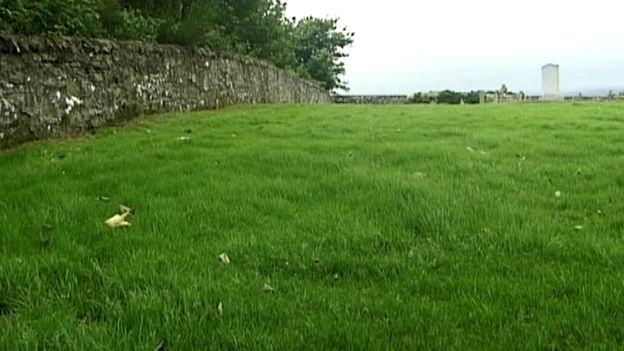
 http://www.bbc.co.uk/news/uk-41200949
http://www.bbc.co.uk/news/uk-41200949







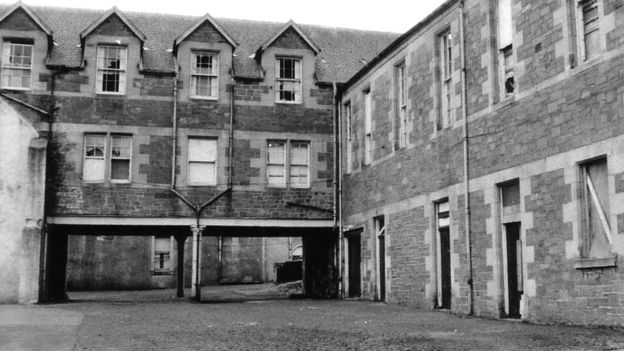



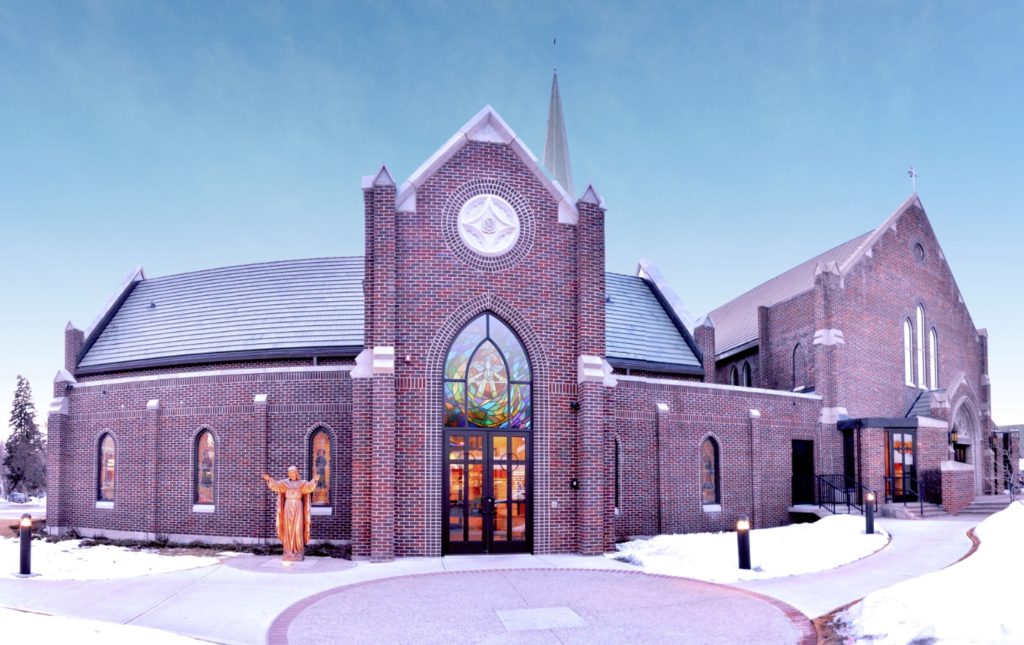









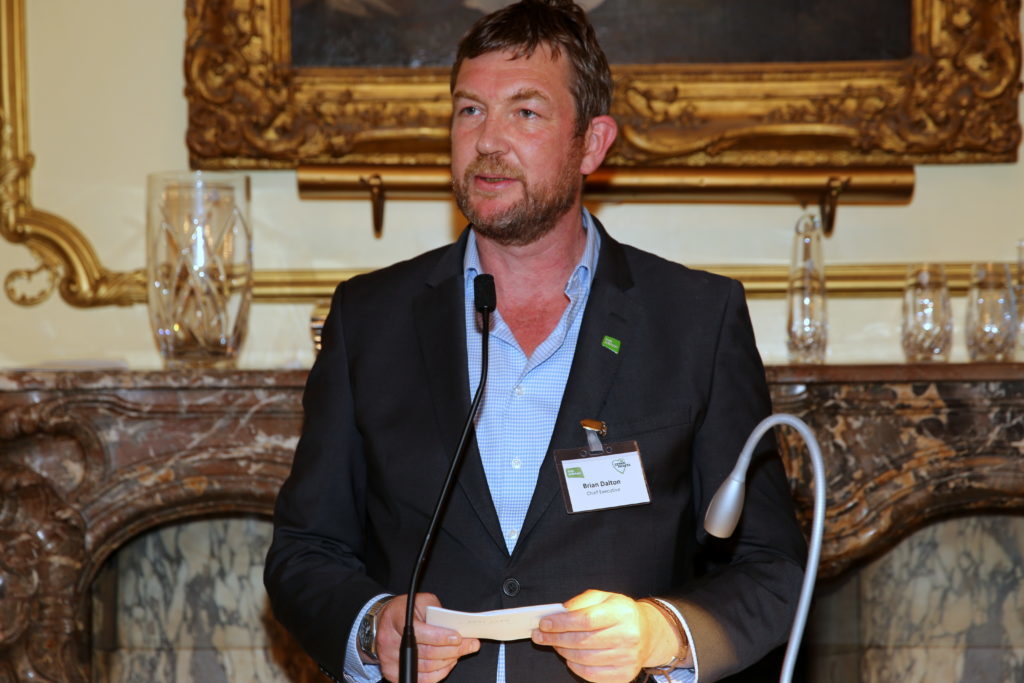
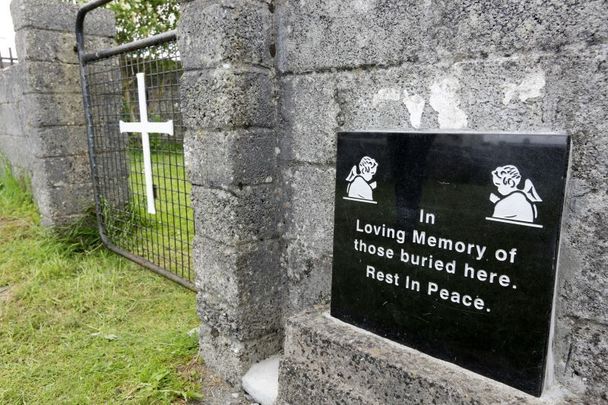
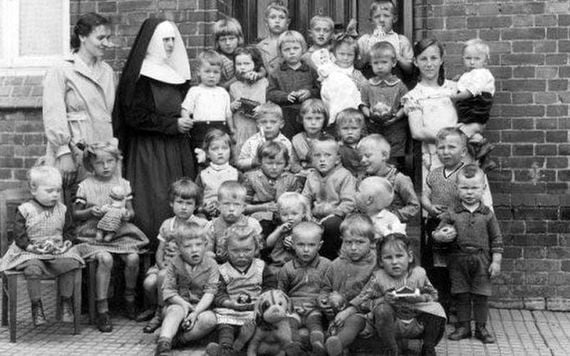
 by
by 

 61-BLUES
61-BLUES
